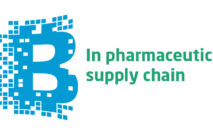Interview with Ramana Pinnam, Director of Product Management, about blockchain technology in the pharmaceutical industry
Perhaps you have heard tale of the up and coming technology called blockchain. Maybe you are an expert on blockchain technology and how it fits into the world of pharmaceuticals. Or perhaps you are like most of the world and you are unsure about what to make of blockchain and frankly you are afraid to ask anyone to explain. If that describes you, never fear! We recently had a fantastic opportunity sit down with Ramana Pinnam, Sr. Director of Product Management here at rfxcel, after he presented at the 2017 HDA Traceability Seminar. Hopefully this conversation sheds as much light on blockchain technology as it has for us.
Could you give us a brief overview of blockchain technology?
Absolutely. Blockchain technology almost says it all in its name. Imagine the “block” as a piece of data and the chain is where that data hooks into place with all the other “blocks” of data. This is a very basic understanding of this technology. The idea behind blockchain technology is to create a secure online based and shared ledger of sorts. Like a banker would keep a ledger of all the transactions by hand, blockchain takes a certain category of transaction and locks in the data so it cannot be lost or misplaced. Blockchain in regards to supply chain has been used primarily in crypto currency transaction such as Bitcoin, but now we are seeing larger companies like Walmart using blockchain to keep detailed records of some of its food products. It is increasingly important in our world today to be able to efficiently track products and transactions from creation to when it reaches the consumers’ hands. Blockchain technology creates a very efficient avenue for that, and we are seeing some pharmaceutical companies beginning to investigate how it can apply to our industry.
Speaking of pharmaceutical companies, how does blockchain technology relate to the pharmaceutical industry?
Well, as of now it does not directly correlate or relate. Some companies are partnering together to research and decide if blockchain technology will be utilized as the future for tracking all individual medications and products manufactured by pharmaceutical companies. It seems to be a promising technology to incorporate into tracking products and mitigating risk of loss or counterfeiting of pharmaceutical products.
What are some Pro’s and Con’s about adopting blockchain technology?
The largest con right now is that we just do not know for sure if blockchain technology will do what we need it to do. A lot more testing needs to be done in the pharmaceutical industry. One of the main pros is also a con. Blockchain locks in data so it cannot be changed or altered. This is quite a positive when trying to track products, but user error can make this problematic. That is why appropriate education and training will be needed for those who adopt blockchain within the supply chain.
If you could, what type of timeline would you guess at for the full incorporation of blockchain into our industry?
As I said earlier, a lot more testing and research must be done. I am not sure of a specific timeline, but there are companies and organizations turning over rocks as we speak to see how blockchain can fit into the pharmaceutical industry. These things take time, but if the research and testing comes back promising we could see the full integration of blockchain technology in just the next few years.
After speaking with Ramana Pinnam we all felt a lot more confident in our understanding of blockchain technology. We hope that we at rfxcel can help you feel more confident about all trends in technology and pharmaceuticals. As far as blockchain technology goes, we are always committed to utilizing the best resources available for our clients. As more information becomes available about the application and use of blockchain technology into our industry you will be the first to know about it.
About rfxcel:
rfxcel is the leading provider of SaaS-based track and trace solutions. Their solution enables companies to protect patients and meet their compliance needs, while getting insights and visibility into their supply chain. Their relentless commitment to customer success and continuous innovation ensures that companies meet their requirements and protect those who depend on them.


